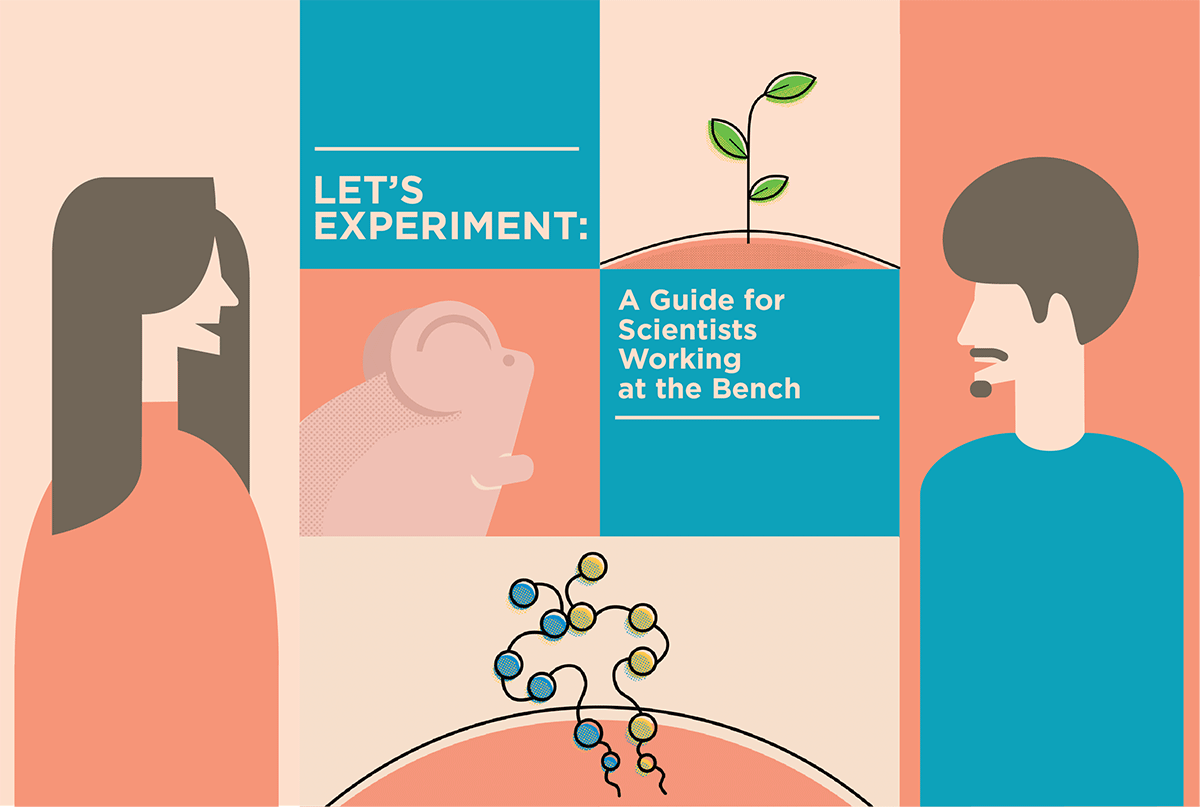
By Ashley Choo
“Let’s Experiment is very well designed and executed….I will definitely teach my students from this course material. I wish the course materials will be freely available online to everybody.”
The first run of the ” Let’s Experiment: A Guide for Scientists Working at the Bench” online course closed April 2nd, but don’t be dismayed if you missed it. Now, with the release of the self-paced version, you can enroll in this free course and take it anytime!
Our goal with “Let’s Experiment,” as with all of our courses, is to provide early career scientists the proper tools and guidance to succeed in their research. With lots of input from the scientific community, we created this course as a comprehensive resource to guide/walk you through how to translate an experimental idea into a result – a result which may not be an exciting or expected result but a result nonetheless. The curriculum addresses important components of rigorous and reproducible experimental design, including:
- Key features of an experiment, such as controls, variables, and replicates.
- How to account for bias in the design of an experiment.
- Tips for when you are just about to start an experiment at the bench for the first time.
- How to approach to piloting, troubleshooting, and optimizing.
In addition to the content, we designed the course to be multidimensional in terms of presentation to enhance your learning experience with the course. What this means is that, while we used video to convey big thoughts and share stories that are deeply instructive and relatable, we used graphics (figures and infographics) to convey the details in an organized and concise manner. We also listed references to if you want to learn more. To tie all of these together, we developed the assessments to help you apply every part of the course directly to your own research.
Based on preliminary analysis of survey results, graduate and undergraduate students, as well as postdocs, seemed to really like the course.
“I really like that this course took the lessons that people learn through experience and directly taught the concepts in a way that is easy to apply to everyday life in the lab. I think it dramatically speeds up the learning process of a trainee and can really improve the productivity when a student receives such lessons early in their training….”
Not to mention that mentors also praised “Let’s Experiment” for its utility as a structured mentoring tool.
“In early stages of science, you are taught to employ good practices such as using replicates, controls, orthogonal approaches, etc., but it takes a while to wrap your brain around WHY these practices are important… This course organizes these habits/good practices formally and with appropriate terminology… I would definitely have any new students in the lab go through this course after their intro/rotation period.”
So, if you want to get the most out of your time at the bench, don’t hesitate to dig into this course. It’s free and – dare we say – FUN!





Leave a Reply